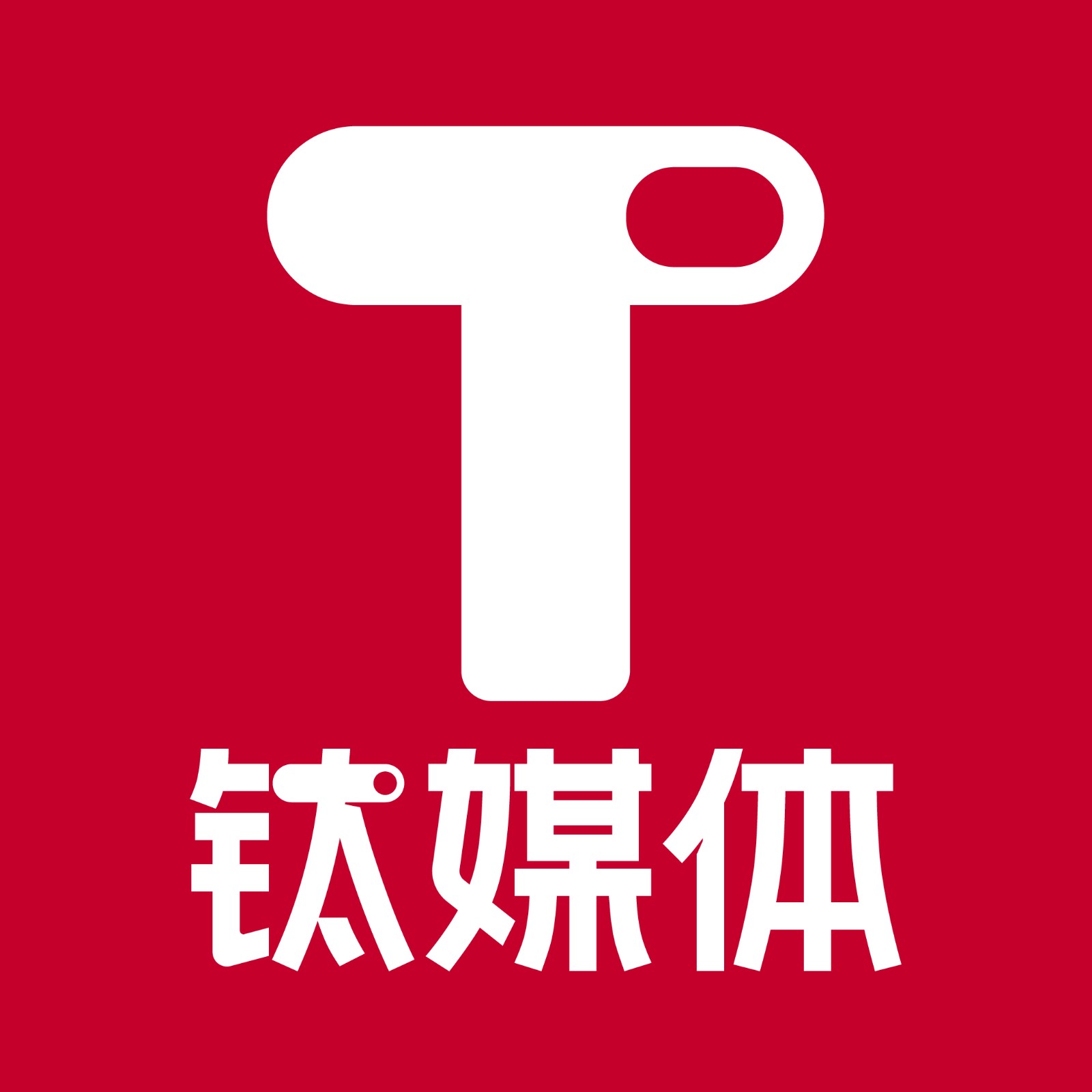Chinese Live Streamer Going Public on NASDAQ
Two Chinese e-commerce live streamers might soon debut on NASDAQ.
MeiOne, the Shanghai-based influencer agency behind Austin Li, is currently trying to recruit a CFO, which hints at a potential IPO on the U.S. stock market, sources said. It is said that MeiOne is considering raising US$300 million through the IPO. Austin Li is one of the most successful and influential liver streamers in China that are famous for their ability to sell an unimaginable amount of products to their audience within minutes.
Surprisingly, Austin Li’s biggest competitor Viya’s Qianxun Group is also eyeing an IPO. The Yunfeng Capital-backed company might choose to go public overseas, an anonymous source familiar with the matter said. For overseas IPO projects, NASDAQ is a great destination.
Although the IPO rumors were quickly denied by the two companies, it is apparent that live streaming-based e-commerce companies are testing the waters to cash in through IPO in the status quo. Austin Li and Viya, who compete against each other on live stream, might soon be fighting each other on NASDAQ.
The pillar that buttresses the two IPO projects is the massive Internet traffic that Li and Viya boast. During the 618 Shopping Festival in China, Li sold more than RMB2 billion of goods in his live streaming room, getting around 8.5 million purchases and over 100 million views. Viya’s live stream room, on the other hand, registered a sales volume of around RMB2.4 billion, selling out more than 6.1 million products and achieving a viewership of 104 million people. These data showcase the massive traffic that e-commerce live streamers hold.
The massive Internet traffic also exposes the ceiling of the e-commerce live streaming industry. According to market research firm iiMedia, the year-on-year growth had declined from 200% in 2018 to 122% in 2020. In 2021, it is estimated that the industry will only see year-on-year growth of 25%. The industry’s golden time has ended.
Besides live streaming, Li and Viya are also tasked with finding further growth now.
This is when IPO becomes imperative for Li and Viya.
With the fund you get from an IPO, you will be able to enhance your influence and enter into new sectors in e-commerce. Secondly, top e-commerce influencers will be able to shackle the growth ceiling and achieve more growth.
Finding breakthroughs in the influencer economy
Li and Viya's unprecedented IPO will have a significant impact on the e-commerce industry.
Top e-commerce live streamers have massive traffic and profitability. Live streamers’ profitability is determined by their influence and skills in interacting with the audience. By contrast, traditional e-commerce businesses rely on shopping festivals on e-commerce platforms to boost sales. This means that live streamers have the ability to achieve massive sales in the live streaming rooms regularly instead of relying on shopping festivals.
In the realm of e-commerce live streaming, consumers make purchasing decisions based on the influence they get from KOL but not necessarily existing brands.
This is how Li was able to sell 15,000 lipsticks in just five minutes and Viya managed to help Expace Technology sell a rocket in her live streaming room. In 2020, Li and Viya accumulated a sales volume of RMB53 billion. Consumers were not only pouring in money for the products that they were interested in but also the live streamers' influence. Without a doubt, Austin Li and Viya are the two most influential figures in China’s e-commerce live streaming scene.
Source: Sixthtone
Viya Even Sold a Rocket via Livestream
IPO will be the tipping point for the influencer economy model to capitalize. Live streamers’ influence will become equivalent to brand influence and advertising, which means it will be recognized as a replicable commercial promotion model.
Furthermore, e-commerce live streaming is also attracting traffic from traditional e-commerce platforms, meaning that China’s e-commerce industry has entered a new phase that focuses more on the mobile experience.
An IPO will provide growth for e-commerce live streaming as well. Even though e-commerce live streaming is generally perceived as a vibrant industry in China now, the industry’s business model is still at its early phase. If top live streamers are able to launch their IPO, they will have access to more funds.
Investors will be supporting these megastar live streaming influencers regardless of whether they can launch an IPO.
Austin Li’s MeiOne received an angel investment from Riverhill Fund and Shuanglong Hangruan Capital in 2015. DT Capital Partners, Sina Weibo Foundation, Whales Capital, Fashion Culture Investment, and Springhill Fund also hopped on the bandwagon in later financing rounds. It is reported that Whales Capital and DT Capital Partners will be the main investors of the IPO. Whales Capital is a private equity firm that specializes in investing in companies with great Internet traffic. DT Capital Partners on the other hand focuses on e-commerce live streaming. Austin Li had not yet entered the live streaming scene when DT Capital Partners invested in MeiOne’s round A financing in 2017. At that time, the investment firm already saw potential in the e-commerce live streaming industry.
Viya’s Qianxun Group has completed two rounds of financing so far. The company received a strategic investment from Legend Capital in 2020 and Yunfeng Capital in 2021. According to open information, Legend Capital’s director Shao Zhenxing is now on Qianxun Group’s board director list. Yufeng Capital is supported by legendary Chinese entrepreneur Jack Ma and Alibaba. It is apparent that even though Qianxun Group only raised two rounds of financing, it still boasts strong capital support.
Alibaba’s footprint is evident in MeiOne and Qianxun Group when we look at the investment they have received.
Austin Li and Viya are highly connected to Alibaba’s e-commerce platform Taobao. Alibaba’s investment in the two live streamers’ companies paved the ways for their IPO. Alibaba needs Internet traffic from the influencer economy, while the influencer economy needs to prove its business model is sustainable.
Once the influencer economy’s business model is proven through IPO, there will be a new wave of IPO hype in the Chinese e-commerce live streaming industry, which will create a lot of competitive live streamers for the e-commerce business. The success of the influencer economy will benefit MCN (multi-channel network) companies in China as well, generating more possibilities in the e-commerce live streaming sector.
Judging from MeiOne and Qianxun Group’s announcement, neither of the two companies is making the first step towards going public. Taobao’s e-commerce live streaming ecosystem also needs Li and Viya to maintain a balance of power.
The first-mover
The first mover will set the standards in the industry.
The competition in the e-commerce live streaming scene is not exclusive to only Austin Li and Viya. Luo Yonghao, for instance, specifically targets the cis male demographic and forged a strong link with TikTok’s Chinese sister app Douyin. Luo was able to sell products of RMB200 million in just one day. Kuaishou’s top live streamer Xinba has also recently resumed live streaming, still boasting massive popularity even after being banned not long ago.
Two out of the top live streaming influencers, Li and Viya, primarily operate on Taobao, with their target demographic overlapping with each other. Both Li and Viya target female users.
Li started his career by selling makeup while Viya took off by selling garments for female consumers. It is inevitable for them to expand their product range to cover all sectors. This means that the two top live streamers compete directly with each other every day. The competition between Li and Viya is a necessary balancing strategy for Taobao.
In comparison with Douyin and Kuaishou, e-commerce live streaming is only one of the many ways for Taobao to reach consumers. This means Taobao faces significantly fewer threats from live streamers in terms of control over the supply chain and GMV. In theory, live streamers have less of an impact on Taobao than Douyin and Kuaishou. In contrast, Taobao’s GMV reached RMB6 trillion in 2020, according to Alibaba’s fiscal report. Taobao's e-commerce live streaming contributed RMB500 billion to the total GMV, with Viya and Li accounting for RMB31 billion and RMB21.8 billion of the total share. None of the two live streamers had an irreplaceable role in Taobao’s e-commerce live streaming in this sense.
But what if the RMB53 billion sales volume was contributed by one particular live streamer?
If that was the case, this particular live streamer would account for over 10% of the total GMV from Taobao’s e-commerce live streaming business. Once there is a such live streamer, Taobao will be in a disadvantaged position because if this live streamer leaves Taobao the loss will be incredible. This is the reason why Li and Viya are in direct competition. The balance of power will ensure Taobao does not have over-reliance on particular live streamers. Alibaba invested in the two live streamers to achieve this balance.
But the balance of power does not guarantee absolute returns for Alibaba. The e-commerce live streaming industry’s growth is declining, which indicates the ceiling is not so far ahead. E-commerce platforms are also struggling to increase traffic to their platforms. Li and Viya’s companies have their respective shortcomings in the organization as well.
MeiOne has limited brands. MeiOne in fact only has Austin Li, Fu Peng (Li’s former assistant) and Naiwa Family (Li’s dog). MeiOne centers itself around Austin Li, which limits the company’s ability to achieve more in the e-commerce live streaming sector.
Fu Peng brought additional traffic to MeiOne for his presence on Xiaohongshu. But that amount of traffic is nothing to compare with that of Li’s. To drive further development, MeiOne would have to explore more commercial possibilities in Austin Li.
MeiOne has made a series of contributions to standard settings in the e-commerce live streaming sector. For instance, Li started to shift his focus to promoting Chinese fashion brands in 2020, which helped domestic brands gain more exposure and reach more consumers. In addition, Li also utilized his influence to help companies build their brands in the market. MeiOne can try to assume a more active role in standard-setting to increase its leadership and competitiveness in the market using Austin Li’s influence.
Viya’s team has a more diverse asset portfolio and more professional operation. She grew from a live streaming veteran to a successful investor, making it into the top 500 rich list in just five years. Viya has planted her seeds in not only MCN giant Qianxun Group, but also private equity. To date, Qianxun Group has reached a partnership with over 5000 brands, accumulating a GMV of RMB10 billion, oftentimes topping the top Taobao live streaming agency chart. With that level of influence also comes greater responsibilities. The Supreme cross-over scandal created an immense backlash against Viya, which also impacted Qianxun Group’s entire KOL team.
Going public on the stock market becomes a way for the two companies to gain more inspiration and support. Whoever gets listed on NASDAQ first will gain the upper hand.
Struggling to gain trust from NASDAQ
An e-commerce live streaming IPO will open a new era for the industry.
A new round of fierce competition in e-commerce live streaming will soon start. However, MeiOne and Qianxun Group are not the first MCN companies specializing in e-commerce live streaming to launch an IPO. MCN company Ruhnn received temporary success on NASDAQ after going public in 2019. But the company’s over-reliance on one influencer, Eve Zhang, eventually led to the downfall of the company’s share price performance. Even Zhang used to account for over half of the company’s revenue. When the scandal between Zhang and Tmall’s president Jiang Fan broke out, Ruhnn’s market value fell by RMB150 million. The company had to delist itself from the American stock market as a result. The company’s market value shrank by 72.8% when compared with its IPO, setting its valuation at only US$281 million.
NASDAQ did not distrust the influencer economy. The problem is trusting the influencer economy comes with great risks. Although Ruhnn had signed over 100 influencers, Zhang still accounted for over 50% of the company’s revenue. When your company relies heavily on one particular influencer to make money, any scandal involving that influencer could be devastating to the company.
The risks will become larger after going public. It is worth noting that influencer scandal is not unusual. Xin Ba, for example, was canceled for his fake cubilose product scandal. But he was able to gradually revive his career on Kuaishou since his company was not publicly listed. Eve Zhang, on the other hand, was not so lucky. She lost the trust of both the investors and consumers.
Top Kuaishou Livestreamer Xinba
The problem with the influencer economy business model is that companies heavily rely on particular individuals to gain profit, which heavily restricts their future development. This also cast doubt on the sustainability of their business model. Secondly, given consumers rely on their trust in KOL to make purchases, they will also quickly abandon KOL once the trust is gone. The delisting of Ruhnn proves that. When scandals strike, consumers can quickly lose their trust in influencers.
Top MCN companies will therefore try to diversify their influencer portfolio. In February this year, e-commerce and MCN company Chen Fan’s co-founder Qian Yufan said in an interview with Phoenix Media that the company needs more popular influencers instead of only a handful of top influencers with massive traffic. Other MCN companies have also shifted their strategy and try to find a more sustainable development path.
E-commerce live streaming shares many similar grounds with the influencer economy. But there is more nuance to it.
E-commerce live streaming is more reliant on the influencer’s influence as people make purchases for their influence. That’s why Austin Li and Viya rely heavily on their influence to capitalize. Their influence and charm are what drives consumption and growth. This means that such a level of aggregation of influence and traffic is necessary for e-commerce live streaming. It is not strategic to try to dilute their influence and distribute their traffic to other smaller influencers.
Li and Viya are also very active in variety shows. Li had participated in a photoshoot for Harper's Bazaar and recorded for Amap’s navigation service. He also appeared on variety shows such as Roast and Happy Camp. Li is also no stranger to fashion events where you can find lots of celebrities around him. Viya, on the other hand, made her appearance on Trump Card and Crossover Singer. Her trip to Hangzhou’s West Lake with influencer Ding Zhen also got her trending on WeiBo.
Their appearance at events outside of e-commerce live streaming rooms is not intended to turn them from influencers into celebrities, but rather build up their brand and influence. Participating in variety shows and fashion events can help solidify their image as influencers and gain more exposure. This also helps them direct more traffic to their live streaming room.
It remains unknown whether it is true that e-commerce business based on the influencer economy is not welcome on NASDAQ.
The two top Chinese influencers have been diversifying their influence. Austin Li is gradually becoming a product manager for Chinese fashion brands. Li’s company MeiOne helped endorse the Guidelines for Product Quality Compliance on E-Commerce Livestream, involving itself in standard settings in the industry. MeiOne became the first Chinese company to roll out its e-commerce live streaming standard. By contrast, Viya has portrayed herself as a philanthropist, actively participating in charity events. On the 2020 China Philanthropy List, Viya was awarded the special contribution title.
The success of these influencers also brings more responsibilities on their shoulders. Their value has expanded from e-commerce to other sectors, which also brings them more traffic.
Diversifying the ways to utilize influencer’ influence appears to be more appealing than trying to discover new influencers. These e-commerce live streaming rooms are also great indicators of changing consumer behavior and market trends. All these explain why the IPO of influencers will be so impactful.
It appears that the e-commerce industry will be entering a new phase of growth once influencer IPO is launched on the stock market.
-----------------------------------------------------
The article is edited by @Jack_Chan (Email: xiaomingchen@tmtpost.com; Mobile/WeChat: +86 13678866580). The Chinese version article is published with authorization from the author @娱频. Please note source and hyperlink when reproduce.
更多精彩内容,关注钛媒体微信号(ID:taimeiti),或者下载钛媒体App

钛媒体 App
13965篇文章TA的动态
2022-09-14 钛媒体 App发布了 《星巴克加码中国市场,未来三年要新增开3000家门店|钛快讯》的文章
2022-08-11 钛媒体 App发布了 《白云山麾下公司虚抬药价“把戏”,被拆穿了》的文章
2022-07-06 钛媒体 App发布了 《为了帮00后卷王找到工作,简历修改师们拼了》的文章
2022-07-06 钛媒体 App发布了 《威尼斯向游客收“进城费”,国内城市如何借鉴?》的文章
2022-03-25 钛媒体 App发布了 《蔚来2021年财报发布:年营收361亿元,整车毛利率达到20.1%》的文章


























